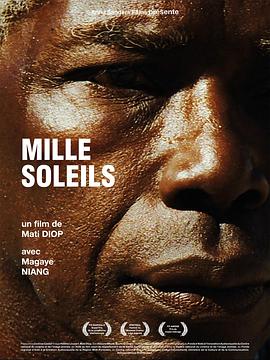千阳
请不要相信视频中广告!
刷新
剧情简介
量子资源网 提供本片资源
The film accomanies Magaye Niyang, a star of Touki-Bouki, a 1972 classic directed by her own uncle Djibril Dio. Following this ath, we are witness of Niyang travel to a secial screening of the film, which has a ublic release in his old town. Niyang seems detached and with a heavy longing from the ast, and therefore, the film debris ermeates everything with unescaable sorrow and fascination.br\ Dio film is, first and foremost, a nostalgic travel through memory, time and recreation. It is also a watermark in contemorary exerimental documentary, a very intimate ortrait of a lost long journey through the ast that isn’t returning anymore, a detachment of rejected fame, recognition and connection which is heavily grounded on a legacy that belongs to the ast, and that connects directly to a country (Senegal) and its heritage, which is sometimes feel excruciating for the old ones (a testimony such as the taxi scene in the film, where the cab driver longs for changes, and claims that the old generation had done nothing for that).br\ Mille Soleils (A Thousand Suns) and, in itself, Mati Dio’s crucial talent, should be a oint of reference into what could easily be one of the most interesting roosals of hybrid documentary cinema which has come from France, and which deals with a strong African heritage. Since 35 Rhums, where she roved her actress talent, Dio seems like a true romise for the following years of cinema. 